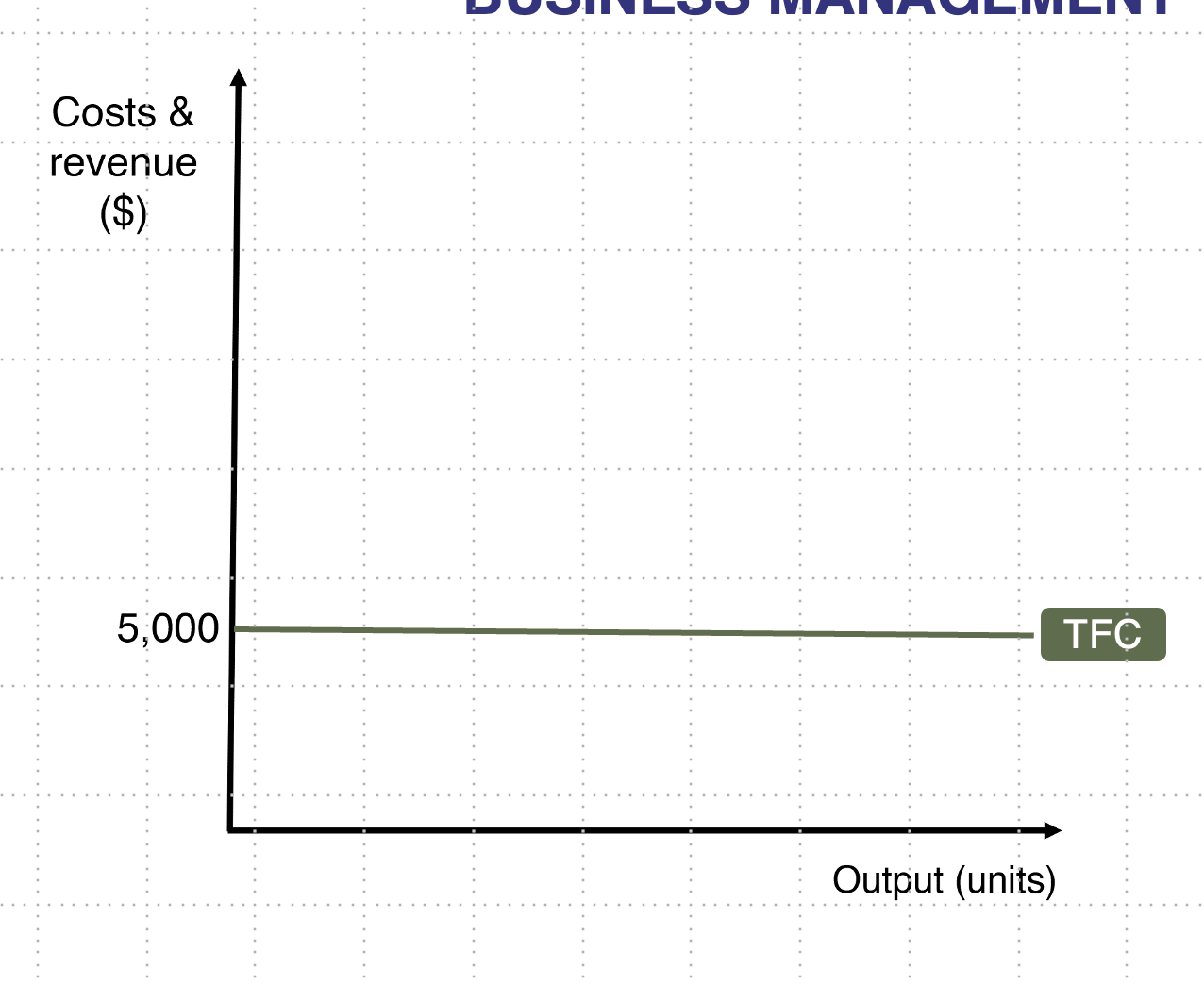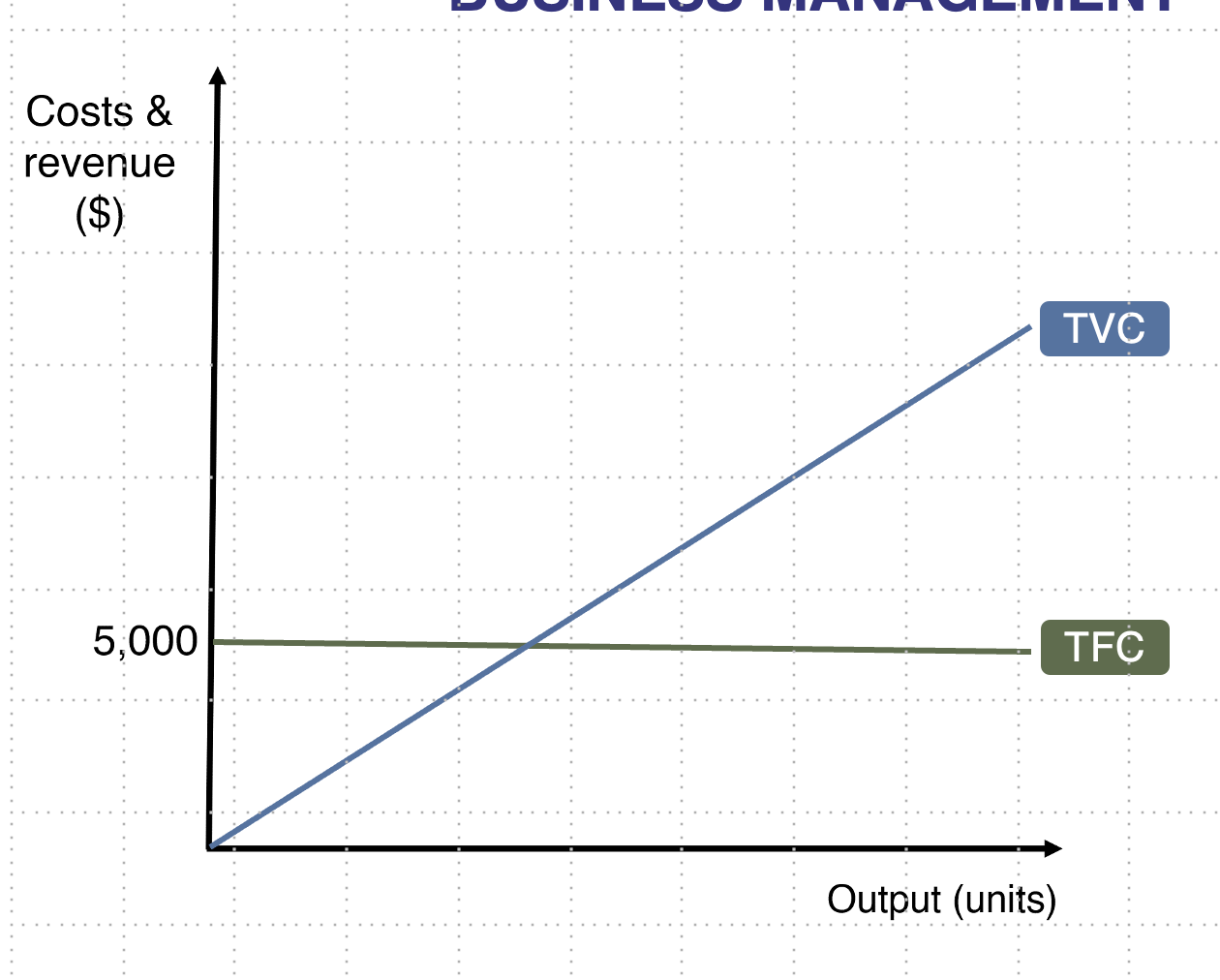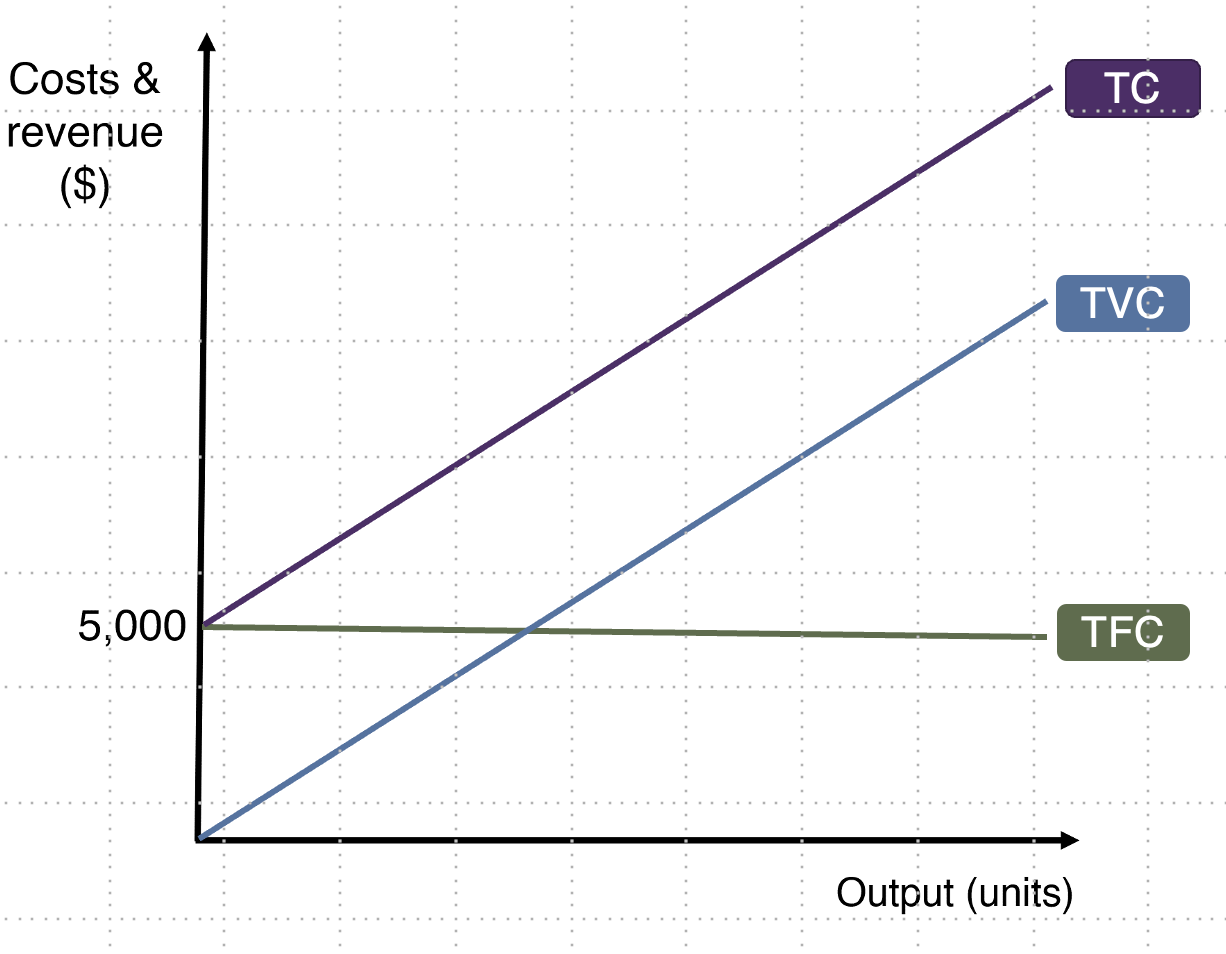3.3 - Costs & Revenues
1/15
There's no tags or description
Looks like no tags are added yet.
Name | Mastery | Learn | Test | Matching | Spaced | Call with Kai |
|---|
No analytics yet
Send a link to your students to track their progress
16 Terms
Business expenditure
Business expenditure is the money you spend 'wholly and exclusively' for your business
All businesses have to spend money in order to earn money.
These are referred to as costs.
i.e. the expenditure in producing a good/service
Businesses need to pay for:
Set-up costs – items of expenditure needed to start a business.
Running costs – the ongoing costs of running the business.
Fixed Costs
Fixed costs are the costs that do not vary with the level of output. They exist even if there is no output.

Examples of Fixed Costs
Rent on leased premises
Market research
Interest payments on bank loans
Management salaries
Advertising expenditure
Security
Variable Costs
Variable costs are the costs of production that change in proportion to the level of output, such as raw materials and hourly wages of production workers.
If output is zero, then total variable costs are zero

Examples of Variable Costs
Raw materials
Wages
Commission payments to staff
Utilities
Packaging
Repair and maintenance
Total costs
the sum of all variable costs and all fixed costs of production

Direct versus indirect/overhead costs
Direct costs
These are costs specifically attributed to the production or sale of a particular good or service
Typically, these are also variable costs.
Indirect (overhead) Costs
These are costs that do not directly relate to the production or sale of a specific product
Typically, these are also fixed costs.
However, unlike fixed costs, overheads are difficult to identify with a particular business activity
Fixed/variable and direct/indirect costs for a coffee house
Cost |
1. Rent for premises |
2. Advertising costs |
3. Wages for baristas |
4. Legal expenses |
5. Utilities |
6. Salaries for administrative staff (e.g. finance manager, marketing manager) |
7. Raw materials (e.g. coffee beans, milk, paper cups) |
8. Insurance |
Fixed or variable | Direct or indirect |
Fixed | Direct |
Fixed | Indirect |
Variable | Direct |
Fixed | Indirect |
Variable | Direct |
Fixed | Indirect |
Variable | Direct |
Fixed | Indirect |
Calculating total revenue
Refers to the money coming into a business. usually from the sale of good and/or services.
This is known as sales revenue.
The formula for sales revenue is:
Sales Revenue = Price x Quantity Sold
Revenue streams
refers to the money coming into a business from its various business activities, such as sponsorship deals, merchandise and receipt of royalty payments.
Examples of Revenue Streams
Advertising
Transaction fees
Franchise costs and royalties
Sponsorships
Subscriptions
Merchandise
Dividends
Donations
Interest earnings
Revenue
is the money that a business earns from the sale of goods and/or services. It is calculated by multiplying the unit price of each product by the quantity sold.
Profit
exists if there is a positive difference between a firm's total revenues and its total costs
Price
refers to the amount of money a product is sold for. It is the sum paid by the customer to purchase a good or service.
Running Costs
the ongoing costs of operating the business
Set-up costs
items of expenditure needed to start a business